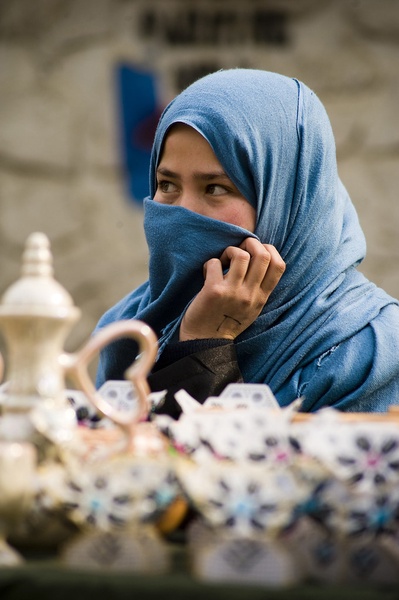“Afghan women are America’s (and the world’s) staunchest allies in creating a stronger, more secure Afghanistan”, wrote a recent CNN commentary. Yet, America seems to be abandoning them amidst its urgency to exit the country. While it cannot be refuted that the spate of events may not portend well for women, what is more discouraging is the lack of commitment on part of Afghanistan’s American or European allies on safeguards to women in the aftermath of the withdrawal.
After its occupation in 2001, Afghanistan also became a laboratory for the two-decade long experiment with the Afghan socio-political fabric as America attempted to institutionalise equitable political representation with equal opportunities for women and the minorities. America’s objectives, while focusing on counter-terrorism, went far beyond it as it focused on instilling egalitarian principles to a society long torn by civil war and oppression.
The passing years saw an exponential rise in the visibility of women across the public sphere, ranging from the media, politics, government jobs and the NGO spaces. This was accompanied by high enrolment rates of girls in schools and universities, despite other administrative shortfalls and high levels of corruption. Having spent two decades and over $2 Trillion into this experiment, the Biden administration has intensified the withdrawal without giving any concrete guarantees on the security or stability of the nation it rebuilt since 2001. Among other challenges, Americans are leaving Afghanistan without laying out any blueprint on how they are supposed to safeguard the hard-won freedom and opportunities for women. Besides the domestic repercussions, this shall reflect poorly on America’s allies and its global imagen especially as it actively engaged in promoting democracy and rules based order across the world.
The latest reports estimate that approximately one-third of the country’s districts have fallen to the Taliban and this coincides with growing attacks on women, especially those engaged in activism, politics and media.
Zalmay Khalilzad, America’s Special Envoy, has appeared to be vocal on safeguarding women rights since his appointment and has given verbal assurance on multiple occasions. This, unfortunately, has not been balanced with any institutional mechanism to back his pledges. Such verbal commitments, when gauged in light of the urgency to allow the Taliban to operate freely appear hollow promises. The fears only get substantiated in light of the international community’s unwillingness to act in light of attacks on women or the closure of girls’ schools by the Taliban. In April 2021, Khalilzad warned of an aid-cut to Afghanistan in case the Taliban failed to uphold women’s rights, but it does not seem to have had any impact on the Taliban’s activities.
As of now, there appears to be no clarity on even the point person or institution that would safeguard Human Rights or what are the safeguards available to women during the withdrawal. Top policymakers have avoided providing any clear answers and the Biden administration seems to be fixated only on the logistical aspects of the withdrawal. There have been interactions between the Taliban and women delegates in the not-so-distant past, and that of the latter with Khalilzad but no clear picture seems to have emerged beyond lip service from Washington.
The beginning of July has marked American withdrawal from its largest base (Bagram) with rising reports of the Taliban’s aggressive inroads to fill the vacuum. It is high time that the international community sheds its symbolism and comes up with strong guarantees to safeguard women rights and sustain their public roles. Participation is the stepping stone in the making of leadership skills, and the present situation seems to endanger this very building block. Washington already has multiple institutional mechanisms through the Quad Grouping and the Indo-Pacific narrative to propel its role in the region. It needs to be multidimensional in its approach as the challenges go beyond China. In fact, if China-US competition is that of geopolitics, the issue of Afghan women hinges on the fundamental principles of human rights and democracy, something innate to the American constitutional values. Thus, sustaining women’s roles in the public sphere, safeguarding their rights and providing them with education and other participatory opportunities needs to be the focus rather than the desperation to hand over the already crumbling administration to Taliban only to add to the country’s challenges. If America’s decisions on Afghanistan move towards capitulating to the very ideologies it fought for so many years, they are bound to alienate its allies, who are increasingly diversifying their geostrategic hedges given the inconsistencies in its policies.
Mrs. Rita Anwari is the Founding Director of Women Empowerment and Leadership in Australia, an organization dedicated to the welfare of women. She has successfully hosted dialogues, liaised with the government and business stakeholders on both sides and mobilized the Afghan community in Australia for the betterment of Afghanistan people and bilateral relations.

